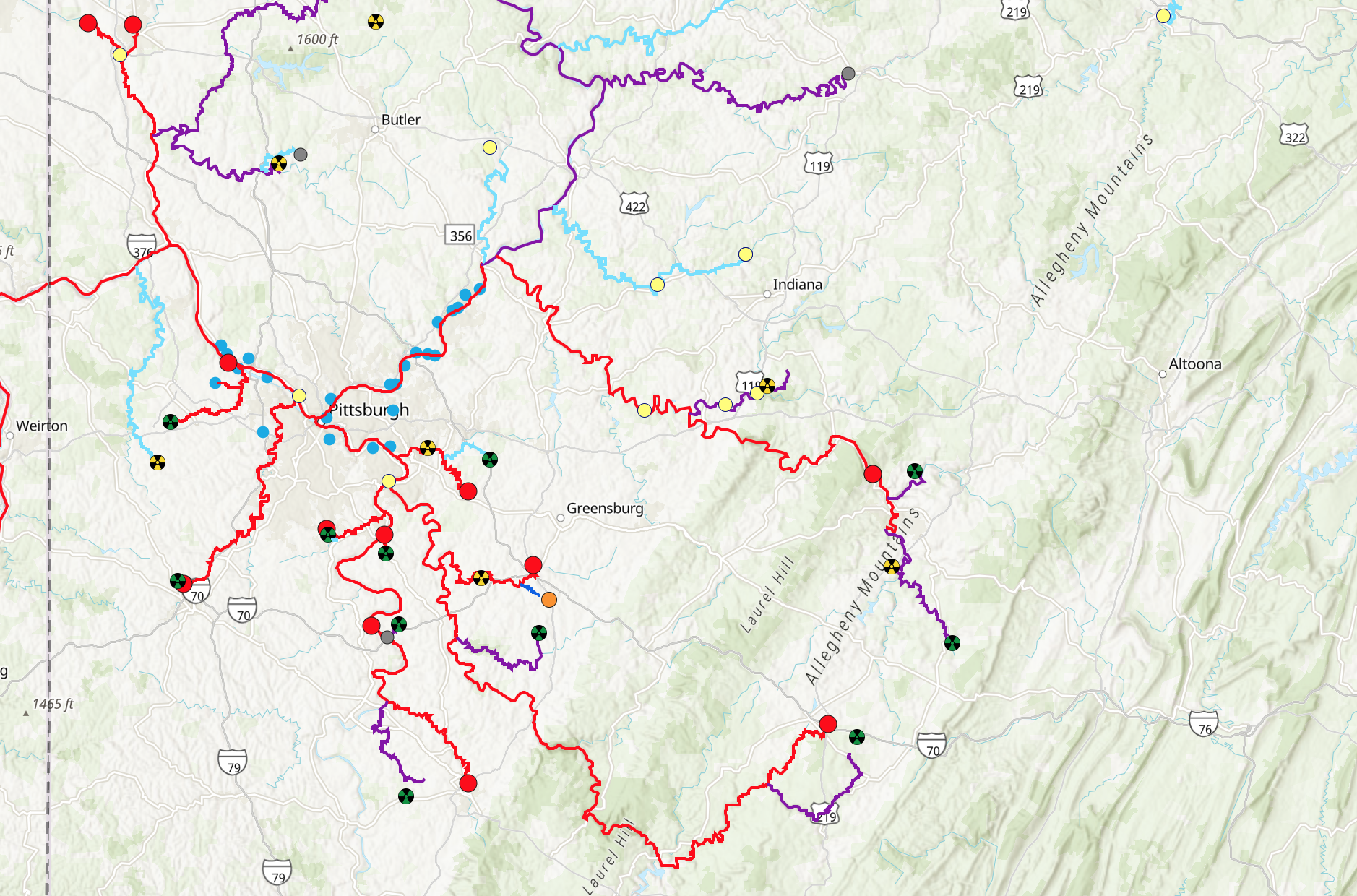Request DOH Include Radioactive Waste Streams While Investigating Health Impacts of Fracking

Image caption: Public Herald’s TENORM Leachate Map illustrates where (in red) TENORM from fracking is escaping into public waters, and where (trefoil symbol) it’s being stored in Pennsylvania. Map created by NOVARE Collective using Fractracker’s 2019 version and Public Herald’s research. Click for interactive map.
Help encourage further research into the increase of rare cancers in Southwestern Pennsylvania. Join The Center for Coalfield Justice (CCJ), Mountain Watershed Association (MWA), and Physicians for Social Responsibility Pennsylvania (PSR PA) in requesting that the Pennsylvania Department of Health adequately engage this serious issue to help protect your community against the health impacts of fracking.
On November 22, 2019, Governor Tom Wolf announced that the state would commit 3 million dollars to study the health impacts of fracking on children in some communities in Southwestern Pennsylvania. This announcement was following public outcry due to a disproportionate prevalence of childhood cancers across three rural counties in Southwestern Pennsylvania. One year after the state committed to an investigation, CCJ, MWA, and PSR PA hosted a virtual town hall meeting with public health experts and concerned community members. The town hall featured the following speakers: Heaven Sensky, Laura Dagley, Justin Nobel, Dr. Marsha Haley, and Dr. Ned Ketyer. A recording of that town hall is available here.
This town hall served as an outreach tool to educate and organize community members to better understand the health impacts of unconventional oil and gas. The information also related how radioactive waste produced by unconventional gas drilling is largely unregulated, and how it may be contributing to the increased rates of bone cancers in our area. As it stands, researchers cannot adequately access the components of oil and gas waste as it is considered proprietary knowledge, or a “trade secret.” What we do not know can hurt us. However, to date, the Department of Health has indicated that the radioactive waste stream of the industry would not be included in their investigation of the health impacts of fracking.
In the few responses that have been received from the DOH, the Department has stated that officials have not heard directly from community members. Because of this, we are calling on concerned community members to share your stories and concerns with DOH, encouraging them to study the waste streams of oil and gas development, not just well heads.
.png)